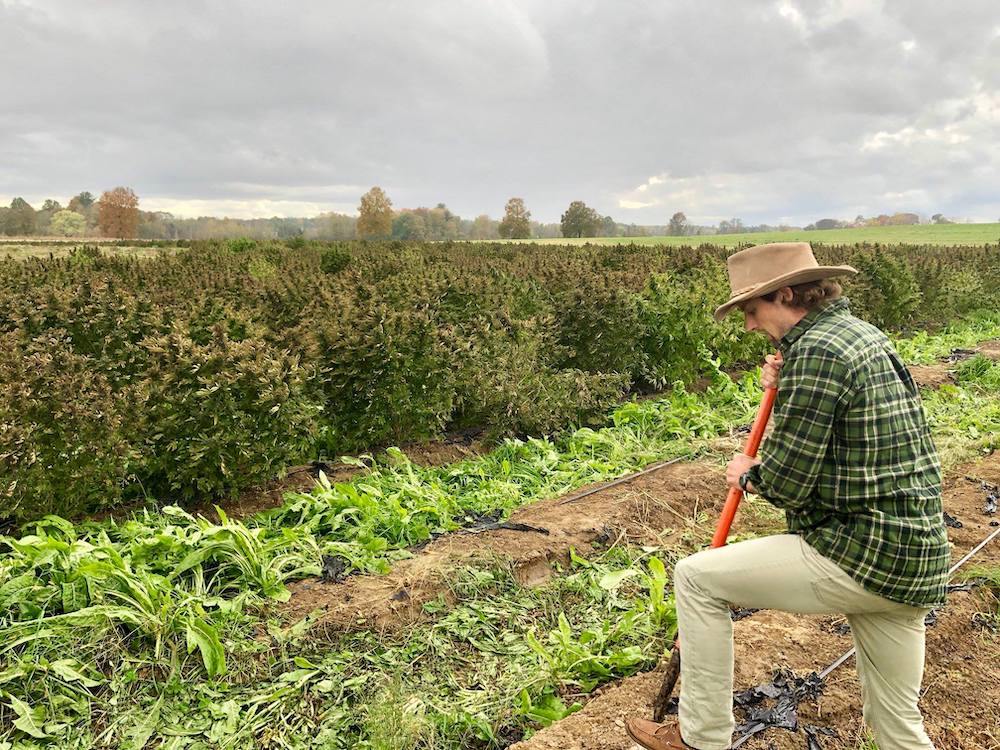Greetings, Agents of Impact!
Dealflow: Carbon Markets
TPG Rise rolls up Element Markets and Bluesource to go big on carbon credits. The impact investing arm of TPG is set to become one of the world’s largest marketers and originators of carbon and environmental credits with the rollup of renewable natural gas company Element Markets and Bluesource, a developer of nature-based carbon credits. Carbon prices have soared over the past year as corporations scramble to meet net-zero pledges and get ahead of carbon risks. “We’ve seen a significant acceleration in demand for high-quality carbon and environmental credits,” driven by global decarbonization goals and corporate net zero targets, TPG Rise’s Marc Mezvinsky told ImpactAlpha.
- Methane capture. Houston-based Element is among the largest North American providers of renewable natural gas from methane-capture projects developed with partners including Smithfield Foods, L’Oreal and Dominion Energy (for background see, “The sky-high value of cutting methane emissions is attracting policymakers – and investors”).
- Nature-based. Utah-based Bluesource partners with municipalities, dairy farms and other organizations to generate and sell renewable natural gas credits. It also develops projects that preserve grassland, improve agricultural practices, capture methane emissions and dispose of ozone-depleting substances.
- Climate capital. TPG Rise will have majority control of the as-yet unnamed venture, which follows TPG Rise’s majority stake taken last January in Element. Funding for the combination also came from NGP Energy Capital Management. TPG Rise last year raised an initial $5.4 billion for TPG Rise Climate. The fund could hit $7 billion.
- More details.
Nori raises $7 million for its blockchain-based carbon marketplace. Seattle-based Nori matches farmers sequestering carbon through regenerative agriculture practices with corporate and individual buyers, like Shopify and the musician Imogen Heap. Nori has paid more than $1 million for 75,000 tons of CO2 removed by the 10 farmers on its platform. Its Series A financing round was led by consumer tech VC M13 along with Toyota Ventures. “There is no problem more urgent than what Nori is tackling: carbon removal,” said M13’s Latif Peracha. “We’ve been looking to invest in companies that leverage blockchains to meet real-world needs.” (For background see, “Climate is a crypto play as action moves from TradFi to DeFi to ReFi.”) Also re-upping: Web 3 investor Placeholder, which participated in Nori’s $4 million seed round in 2020.
- How it works. Farmers generate Nori Removal Tons, or NRTs, a non-fungible token equivalent to one ton of carbon removed. Sold tokens are retired on Nori’s Ethereum blockchain, ensuring that they cannot be resold or double-counted. Farmers are paid up front and Nori charges a transaction fee to buyers. Nori offers jittery corporate buyers a warranty: it will purchase new credits and make the buyer whole in case of wildfires or other project losses.
- Price discovery. While carbon prices on regulated markets have soared, prices for nature-based removal have lagged in the voluntary markets. Nori’s farmers, who are paid up front, have received $15 per ton to date. Nori plans to introduce a tradable token to set the price of future NRTs. “The way to win in this industry is to build out the most robust supply pipeline,” Nori’s Paul Gambill told ImpactAlpha. “The way for us to do that is by offering a better user experience and a better price.”
- More.
Actual raises $5 million to simulate the impact of ESG strategies. Regulatory and stakeholder pressures have C-suites scrambling for ESG strategies, net zero goals, impact reports and carbon spreadsheets. More challenging: actionable plans to transform companies. “We found that executives and leaders at a lot of organizations were basically having trouble figuring out, ‘What are we going to do about it?’” Actual’s Karthik Balakrishnan told ImpactAlpha. Actual’s 3D-modeling software, he said, helps “solve the execution gap when it comes to the ESG transformation.”
- ESG metaverse. The SimCity-like model combines a graph-based computing engine with a game-inspired interface to help executives understand the impact of changing energy sources, electrifying transportation or reducing waste and to answer the question: What are we going to invest in to achieve our ESG goals? Investors in the $5 million seed round included Buckley Ventures, Social Impact Capital and Hyper.
- Share this post.
BlackRock leads Revel’s $126 million funding round to expand EV charging in major U.S. cities. Brooklyn-based Revel, which since 2018 has managed a fleet of bright blue electric mopeds, wants to make it easier for New Yorkers to transition to electric vehicles. The investment will help the company open fast-charging “Superhubs” in New York and other major U.S. cities. Revel’s fleet of electric mopeds can also be found in Washington, D.C., Miami and Oakland, Berkeley and San Francisco. The company opened its first Superhub with 25 universal fast chargers in Brooklyn last year. Revel has raised $165 million to date.
- EV push. Shell Ventures and Goodyear Ventures joined Revel’s Series B round, which was led by BlackRock’s Global Renewable Power group. The BlackRock division, which closed a $4.8 billion climate infrastructure fund last year, created a joint venture to build electric truck charging stations on freight routes along the U.S. East and West Coasts, and in Texas. BlackRock also backed global EV charging companies JOLT and Ionity.
- Share this post.
Dealflow overflow. Other investment news crossing our desks:
- Mumbai-based battery recycling tech startup Ace Green Recycling raises $7 million in a funding round led by Circulate Capital.
- Capria Ventures and Cometa, a Mexico-based venture firm looking to raise a $100 million fund, join forces to invest in startups approaching unicorn status.
- The U.S. Department of Energy will invest $150 million in research projects reducing carbon emissions from energy technologies and manufacturing.
- Agri-Business Capital Fund secures $5 million from Bank of America to invest in businesses supporting smallholder farmers in emerging markets.
Impact Voices: SDG Finance
Memo to the Impact Task Force: Break down silos to rescue the Sustainable Development Goals. A U.N. report last year found that SDG investment in developing and transition economies is nearly 20% lower than when the goals were adopted in 2015. The effective target date for achieving the 2030 goals: 2093. “We have gone from the Millennium Development Goals to the Centennial Development Goals,” Total Impact Capital’s Arthur Wood writes in a guest post for ImpactAlpha. “The more we have proclaimed progress in the mobilization of assets and impact, the further we have gone backward.” The former investment banker critiques the recent report of the G7 Impact Task Force, convened by the Global Steering Group on Impact Investing, as relying on a blended-finance model when “there is simply not enough subsidy to go around.” Alternative approaches:
- Externalities. Without measuring the “positive externalities” of innovative social interventions and of the sequencing of such interventions, Wood says, “you end up in a mechanism where society’s limited and valuable subsidy is channeled to the interests of business in a self-regulatory framework.”
- Endowments. Of the more than $1.5 trillion held in philanthropic endowments, as much as 95% is unaligned with foundations’ core social missions. “Perhaps we should ensure their tax break is a function of the social impact created,” Wood writes. “The chief cooks in the kitchen would do well to take a harder look at their larders.”
- Pensions. “How about aligning the more than $3 trillion in local-currency pension funds in the developing world with their own essential sustainable development?” Wood asks (for background, see, “National advisory boards target local pension funds for small-business financing in emerging markets“).
- Aggregation and scale. “Legal and technology frames now exist to track, audit and pay for granular interventions in the context of a systems frame,” Wood says. His suggestion: “Ride on the back of the technology and legal revolutions to create transparent, technically-robust and trackable multi-sided aggregation of development markets.”
- Keep reading, “Memo to the Impact Task Force: Break down silos to rescue the Sustainable Development Goals,” by Arthur Wood on ImpactAlpha. See Wood’s presentation of “A new finance paradigm in development,” hosted by TBLI Group’s Robert Rubinstein, on Thursday, Mar. 3.
Agents of Impact: Follow the Talent
Mission Driven Finance promotes Zach Lickteig (portfolio operations associate), Andrew Moncada (investment associate), Laura Olivas (senior manager) and Crystal Sevilla (manager). The firm is hiring a real estate director and other roles… Personetics seeks an ESG research analyst in Tel Aviv… Developing World Markets is recruiting a senior regional representative on its private debt team in Nairobi.
Thank you for your impact.
– Feb. 24, 2022











